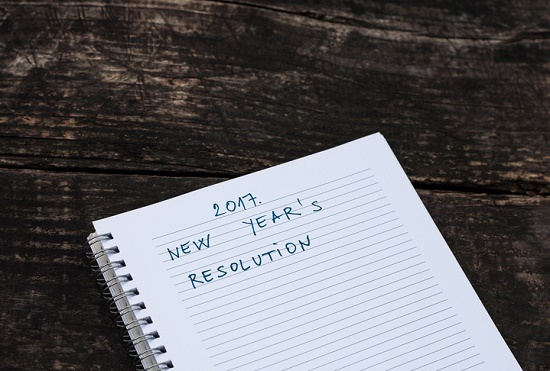
It’s the New Year, which for many of us means pledging to eat better, work out more, and save more money. But we might want to add to this list the resolution to preserve our hearing.
In 2016, we read a large number of reports regarding the expanding epidemic of hearing loss. The World Health Organization has warned us that billions of individuals are at risk from direct exposure to loud noise levels at work, at home, and during leisure activities.
We also found out that even teens are at risk, as the rate of hearing loss in teens is 30 percent higher than it was in the 1990s.
The bottom line is that our hearing can be harmed at work, while attending live shows, and even at home via the use of earbuds and headphones played at elevated volumes.
This year, let’s all start off on the right track by making some simple resolutions to protect and maintain our hearing health.
1. Know how loud is too loud
First, how loud is too loud, and how can you know when your hearing is at risk?
To start with, sound is measured in units called decibels. As the decibel level rises, the intensity of the sound increases together with the risk of hearing damage.
Here’s a list of sounds with their matching decibel levels. Note that anything above 85 decibels can potentially harm your hearing with continual exposure.
- Whisper in a quiet library – 30 decibels (dB)
- Normal conversation – 60 dB
- City traffic – 85 dB
- Jackhammer at 50 feet – 95 dB
- Motorcycle – 100 dB
- MP3 player at maximum volume – 100+ dB
- Power saw at three feet – 110 dB
- Loud rock concert – 115 dB
- 12-Gauge Shotgun Blast – 165 dB
Remember that with the decibel scale, a 10 dB increase is perceived by the human ear as being two times as loud. This means that a rock concert at 110 dB is 32 times louder than a normal conversation at 60 dB.
2. Safeguard your ears
Hearing damage is dependent upon three factors: 1) the volume or intensity of the sound, 2) the period of time subjected to the sound, and 3) the distance between your ears and the sound source.
That implies that, generally speaking, there are three ways you can guard against hearing injury from exposure to loud noise:
- Limit the volume with the use of earplugs (or by lowering the volume on an mp3 player).
- Limit the time of exposure to the noise either by avoiding it or by taking rest breaks.
- Increase the distance from the sound source as much as possible (for example, not standing directly in front of the speakers during a rock concert).
Below are some other tips to protect your hearing:
- Use the 60/60 rule when listening to music on a mobile device—listen for no more than 60 minutes at 60 percent of the maximum volume.
- Talk to your employer about its hearing protection programs if you work in an at-risk occupation.
- Use hearing protection at loud locations and during loud activities. Inexpensive foam earplugs are obtainable at your local pharmacy, and custom made earplugs are available from your local hearing professional.
- Invest in noise-cancelling headphones. These headphones block outside sound so you can listen to the music at decreased volumes.
- Invest in musicians plugs, a special type of earplug that reduces volume without generating the dull sound of foam earplugs.
3. Know the signs of hearing loss
Hearing loss results when the nerve cells of the inner ear are damaged. Below are a few of the signs of hearing loss to look for immediately after exposure to loud sounds:
- Ringing in the ears, also called tinnitus.
- The sensation of “fullness” in your ears.
- Difficulty comprehending speech, where everything sounds muffled.
Those are a few of the signs of hearing damage immediately after exposure. Here are the signs of permanent hearing loss:
- Asking other people to repeat themselves often, or regularly misinterpretation what people are saying.
- Having difficulty following conversations and making fine distinctions between similar sounding words and phrases.
- Turning the TV or radio volume up to the level where others notice.
- Thinking that other people are always mumbling.
- Having difficulty hearing on the phone.
Most frequently, your family members or friends will be the first to notice your hearing loss. It’s easy to brush this off, but in our experience, if somebody is told they have hearing loss by a family member, chances are good that they do.
4. Get a hearing test
Last, it’s vital to get a hearing test, for a couple of reasons. One, if your hearing is normal, you can not only tell others that your hearing is fine, you’ll also establish a baseline to contrast future hearing tests.
Second, if the hearing test does display hearing loss, you can work together with your hearing care professional to choose the most appropriate hearing plan, which usually includes the use of hearing aids. And with modern-day technology, you can restore your hearing and improve almost every aspect of your life.
